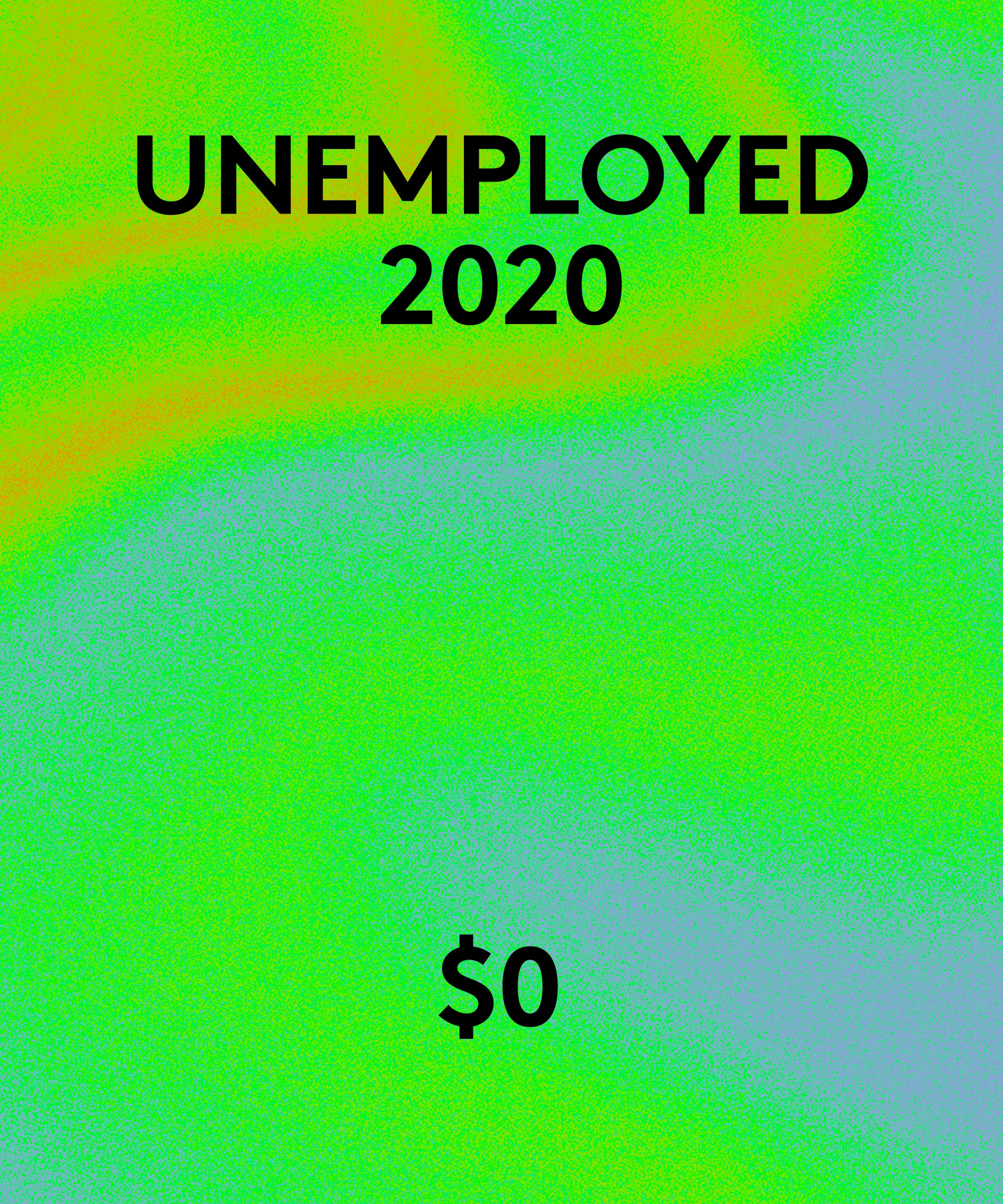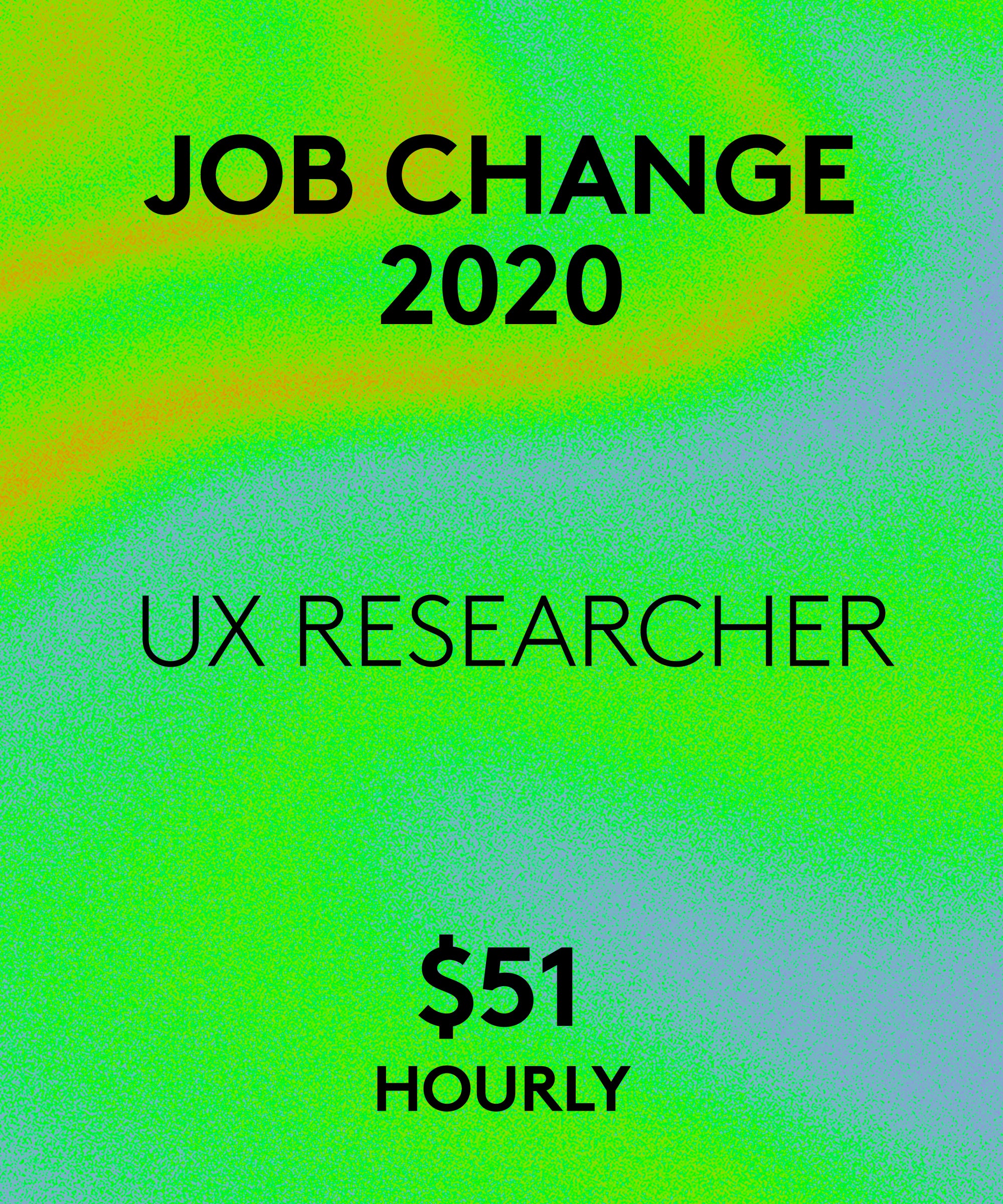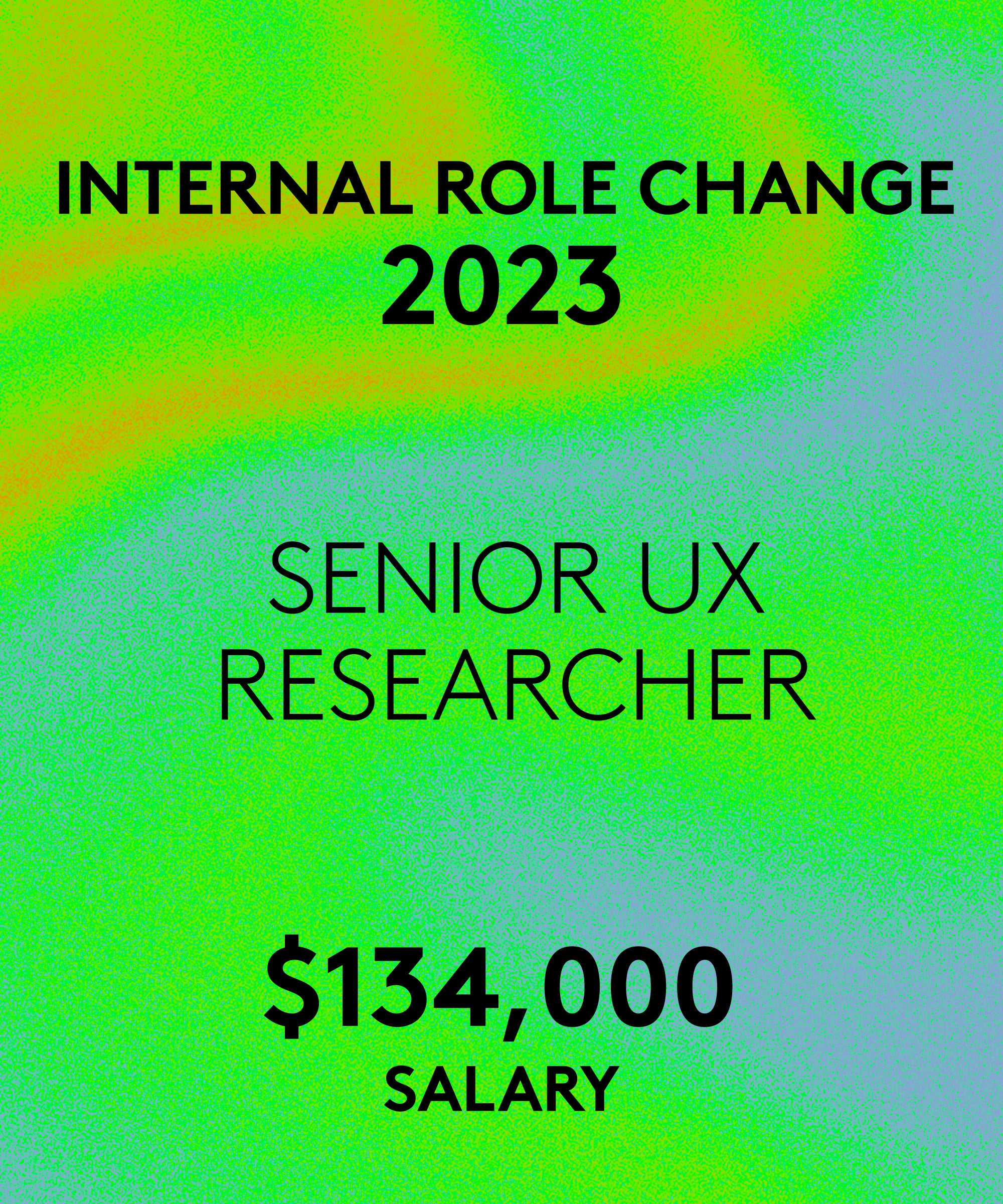Salary Story: I Was Laid Off During COVID-19 & Now Make $134k In UX
In our series Salary Stories, women with long-term career experience open up about the most intimate details of their jobs: compensation. It’s an honest look at how real people navigate the complicated world of negotiating, raises, promotions and job loss, with the hope it will give young people more insight into how to advocate for themselves — and maybe take a few risks along the way.
Been in the workforce for at least five years and interested in contributing your salary story? Submit your information here.
Age: 26
Location: Austin, Tt
Current industry and job title: Senior UX researcher, Tech
Current salary: $134,000/year, plus stock and annual bonus
Number of years employed since school or university: 4
Starting salary: $33/hour
Biggest salary jump: My biggest jump was in 2020 when I went from a contract position making $33/hour to another contract making $51/hour. I am now FTE, and each year I have had at least a 10% raise due to promotions or switching jobs.
Biggest salary drop: I have not experienced a salary drop.
Biggest negotiation regret: I wish I had negotiated more. Not necessarily for more in salary, but for more perks like sign-on bonuses or better titles. I’ve only worked for huge companies, so it has always felt intimidating going up against what feels like rigid systems.
Best salary advice: Share your salary with your coworkers — at least those you feel comfortable with sharing. Recently, many of my coworkers and I on my previous team either took severance or another internal position, so we all shared our current salaries with each other. We were shocked at the disparity even though many of us had the same title and level. We were able to get a much clearer picture about what to ask for in our subsequent roles.
This was an entry-level position in the tech field for consumer electronics. I primarily assisted the lead UX researcher on the team. I helped with user research interviews, coded user insights, and occasionally the UX lead would have me present findings to leadership to get practice and exposure. We had a human factors lab on site, so pre-COVID-19 we would have participants come in and use the different prototypes.


This position was in the ads space. I spent a lot of time remotely conducting interviews for users posting ads as well as viewing ads when searching for related content.

This position was on the tech side of a large retail company. Despite the title, I was still primarily executing UX research. There were no other researchers on the team, so for the first time it was primarily up to me to decide what to do on the research end to support design initiatives. While ultimately formative, it was a stressful jump to make, and I’m grateful to have been on a supportive team.

At this time, I had moved cross-country for this role and was also pursuing my master’s degree, which may have added to the stress of the job.

My current employer is huge, so there are many different organizations. I moved from a small design team embedded in an org to the actual central design organization for the company. Each UX researcher supports different verticals of the business, mine is more consumer facing. Joining this team of other UX researchers, I feel as though the standards are higher and I receive so much more mentorship and constructive feedback than just working by myself. As far as responsibilities go, I still do mostly remote interviews and research but occasionally do in-person research. I have some autonomy over deciding what methods and research plans to use, but defer to management to the overall direction of the project roadmap. Deciding on projects and products to prioritize always gets very political and tied up across design, business, and product teams along with fielding different asks coming top-down, so I am happy to not be responsible for sorting through it all and rather try to learn what I can for the time being (from a safe distance).
I hope to move into a ‘lead’ or ‘staff’ level role as a UX researcher in the next 18 months, which would be a step above senior. I would be hoping to make a $150,000 base, with a total comp of around $180,000. The next level is usually the highest level you can reach at non-tech companies as an individual contributor. From there, I’d have to consider if I’d want to move into management, or if I’m content remaining as an individual contributor (IC). To go the IC route, I may have to move to a technology company (versus a tech role at a non-tech company, where I currently am), as tech companies tend to allow better advancement of IC roles.
Like what you see? How about some more R29 goodness, right here?
The Best Career Advice From R29’s Salary Stories
Salary Story: I’ve Always Negotiated My Pay
Salary Story: How I Left Toxic Jobs To Make $70k
Salary Story: How I Got A $40k Raise
Source link
